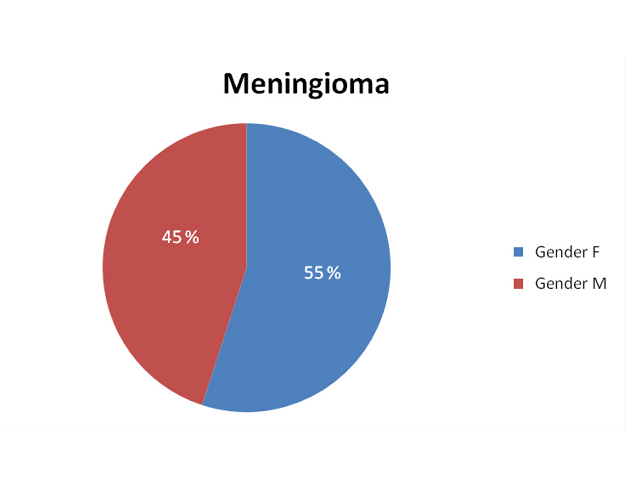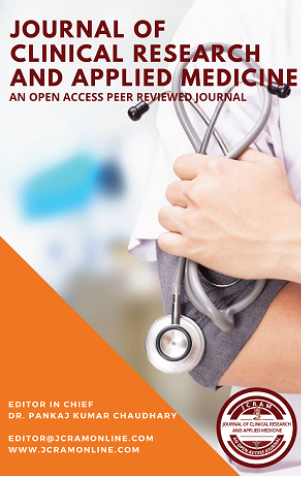Prevalence of Meningioma in South Indian Population Diagnosed through Magnetic Resonance Spectroscopy – A Retrospective Study
DOI:
https://doi.org/10.5530/jcram.1.2.15Keywords:
Brain lesions, Dizziness, Diabetes Mellitus, Gender, Meningioma, VomitingAbstract
Introduction: Meningioma originates in cerebral dura mater and can grow at any site, especially at the skull vault and the skull base. Meningioma accounts for 37% of all central nervous system tumor. MRS (Magnetic Resonance Spectroscopy) provides additional structural and metabolic information that helps to diagnose meningioma. Objectives: The aim of the study was to investigate the prevalence of brain tumor meningioma in patients with characteristic risk factors like headache, vomiting, dizziness etc to assess the diagnostic significance. Materials and Methods: This is a retrospective study and was conducted in the Radiology Department and Biophysics Departments of one of the tertiary health care centres in South Kerala. This study was conducted on 81 subjects with brain lesion, including both males and females, who underwent MRS. From MRS findings, the prevalence of Meningioma was detected. Patient’s demographics were also taken for the analysis and interpretation. Results: From this study it was understood that out of the 81 cases, 40 were of Meningioma. In this 40 patients, 22 were females (55%) and 18 were males (45 %). Among these 40 cases, the frequency of brain lesions was higher in old aged group (60 %) when compared to younger (0%) and middle age groups (40%). It was found that out of the 40 patients, 42 % had headache, 28 % had vomiting, 23 % had Type-2 diabetes mellitus and 7% had dizziness. Conclusion: From this study, it is confirmed that among the brain lesions, the incidence of Meningioma is higher and was prominent among old aged group and the incidence is reported to be higher in females. This indicates the need of special attention for these patients for early diagnosis and timely intervention.

Downloads
Published
How to Cite
Issue
Section
License
JCRAM and its contents are licensed under a Creative Commons Attribution-Non Commercial-No Derivs 4.0 License. Permissions beyond the scope of this license may be available with editor@jcramonline.com






